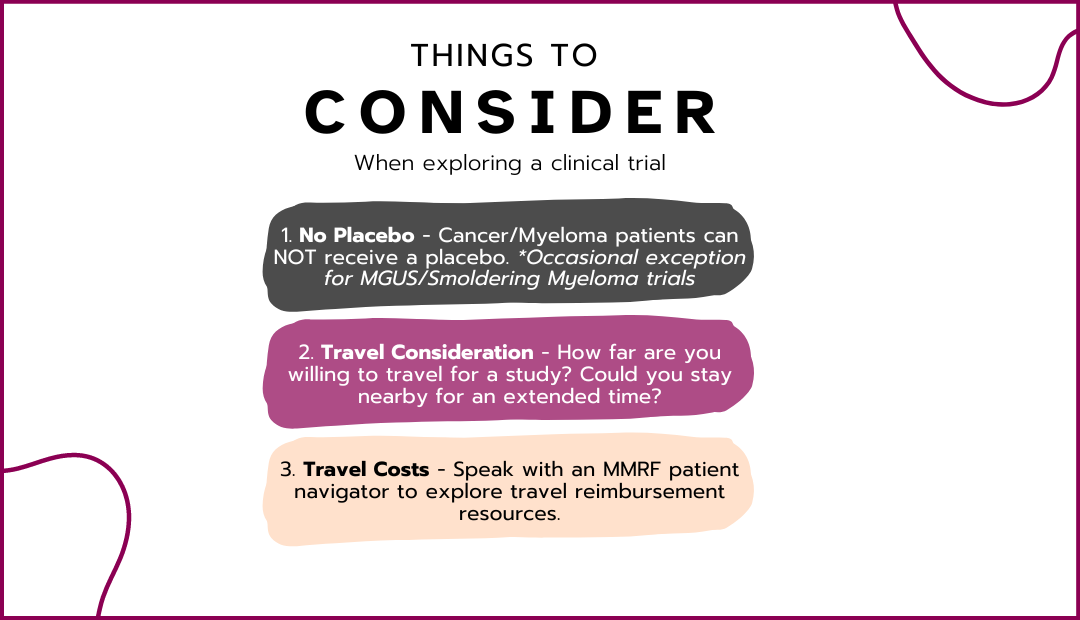Siltuximab in Schizophrenia
NCT02796859
Age 18 - 55
Sex Both
Phase Phase 1, Phase 2
Third Opinion Trial Synopsis
In this clinical study, researchers are exploring a new treatment approach for patients with a specific type of blood cancer. The study focuses on using a combination of therapies to improve patient outcomes. Here are some key details about the study:
- The treatment involves a unique combination of existing therapies, which may enhance effectiveness compared to standard treatments.
- Patients will receive the treatment in a structured environment, allowing for close monitoring and adjustments as needed.
- The study aims to evaluate how well this combination works in managing the disease and improving quality of life.
- Participants will be closely observed for any side effects, helping to ensure their safety throughout the trial.
- This study is being conducted at multiple sites, which may provide a diverse patient population and more comprehensive results.
Third Opinion AI Generated Synopsis
Trial Summary
This study is a Phase 1 clinical trial to determine the safety, tolerability, and efficacy of Siltuximab (Sylvant) as an adjunct to antipsychotic medications in stable outpatients with schizophrenia. Siltuximab (structural formula C6450H9932N1688O2016S50) is a recombinant chimeric (human-murine) anti-human interleukin-6 (IL-6) monoclonal antibody. Siltuximab is formulated as a concentrate for solution for infusion, and will be administered by intravenous infusion. The investigators propose a 9-week randomized controlled trial of siltuximab, given in adjunct to antipsychotics, in N=30 stable outpatients with schizophrenia or schizoaffective disorder and evidence of increased inflammation in the peripheral blood (high-sensitivity C-reactive protein \[hsCRP\] \>0.5 mg/dL). The investigators hypothesize that adjunctive treatment with siltuximab will be associated with significant improvement in cognition compared to placebo in patients with schizophrenia, baseline IL-6 levels are higher in siltuximab-treated responders versus non-responders, and there will be greater decreases in hsCRP from baseline to week 6 in siltuximab-treated versus placebo-treated responders, with response defined as ≥0.5 SD improvement in cognition. Siltuximab is administered as an intravenous infusion every 3 weeks. Following a screening evaluation, participants will receive three infusions of siltuximab, one at baseline, another at week 3 of the study, and another at week 6. The investigators will measure changes in cognitive function and symptoms over a 9-week period. Complementing previous positive clinical trials of non-steroidal anti-inflammatory drugs, this would be a "proof-of-concept" study that targeting specific cytokines is a viable treatment for schizophrenia. Interleukin 6 and its receptor were discovered and cloned at Osaka University, Japan, by Tadamitsu Kishimoto in the 1980s. Janssen Pharmaceuticals, Inc. began the clinical development of siltuximab for the treatment of multicentric Castleman's disease, a rare blood disorder. Other clinical studies with siltuximab have been conduced for patients with B-cell non-Hodgkin's lymphoma, multiple myeloma, and ovarian cancer. In April 2014,siltuxiumab was approved by the U.S. Food and Drug Administration (US FDA) as Sylvant for human immunodeficiency virus (HIV)-negative and human herpesvirus-8 (HHV-8)-negative multicentric Castleman's disease.
This study is a Phase 1 clinical trial to determine the safety, tolerability, and efficacy of Siltuximab (Sylvant) as an adjunct to antipsychotic medications in stable outpatients with schizophrenia. Siltuximab (structural formula C6450H9932N1688O2016S50) is a recombinant chimeric (human-murine) anti-human interleukin-6 (IL-6) monoclonal antibody. Siltuximab is formulated as a concentrate for solution for infusion, and will be administered by intravenous infusion. The investigators propose a 9-week randomized controlled trial of siltuximab, given in adjunct to antipsychotics, in N=30 stable outpatients with schizophrenia or schizoaffective disorder and evidence of increased inflammation in the peripheral blood (high-sensitivity C-reactive protein \[hsCRP\] \>0.5 mg/dL). The investigators hypothesize that adjunctive treatment with siltuximab will be associated with significant improvement in cognition compared to placebo in patients with schizophrenia, baseline IL-6 levels are higher in siltuximab-treated responders versus non-responders, and there will be greater decreases in hsCRP from baseline to week 6 in siltuximab-treated versus placebo-treated responders, with response defined as ≥0.5 SD improvement in cognition. Siltuximab is administered as an intravenous infusion every 3 weeks. Following a screening evaluation, participants will receive three infusions of siltuximab, one at baseline, another at week 3 of the study, and another at week 6. The investigators will measure changes in cognitive function and symptoms over a 9-week period. Complementing previous positive clinical trials of non-steroidal anti-inflammatory drugs, this would be a "proof-of-concept" study that targeting specific cytokines is a viable treatment for schizophrenia. Interleukin 6 and its receptor were discovered and cloned at Osaka University, Japan, by Tadamitsu Kishimoto in the 1980s. Janssen Pharmaceuticals, Inc. began the clinical development of siltuximab for the treatment of multicentric Castleman's disease, a rare blood disorder. Other clinical studies with siltuximab have been conduced for patients with B-cell non-Hodgkin's lymphoma, multiple myeloma, and ovarian cancer. In April 2014,siltuxiumab was approved by the U.S. Food and Drug Administration (US FDA) as Sylvant for human immunodeficiency virus (HIV)-negative and human herpesvirus-8 (HHV-8)-negative multicentric Castleman's disease.
from ClinicalTrials.gov
Locations & Contact
Fill out the form and to let the Multiple Myeloma Research Foundation know you are interested in this trial.
Contacts:

